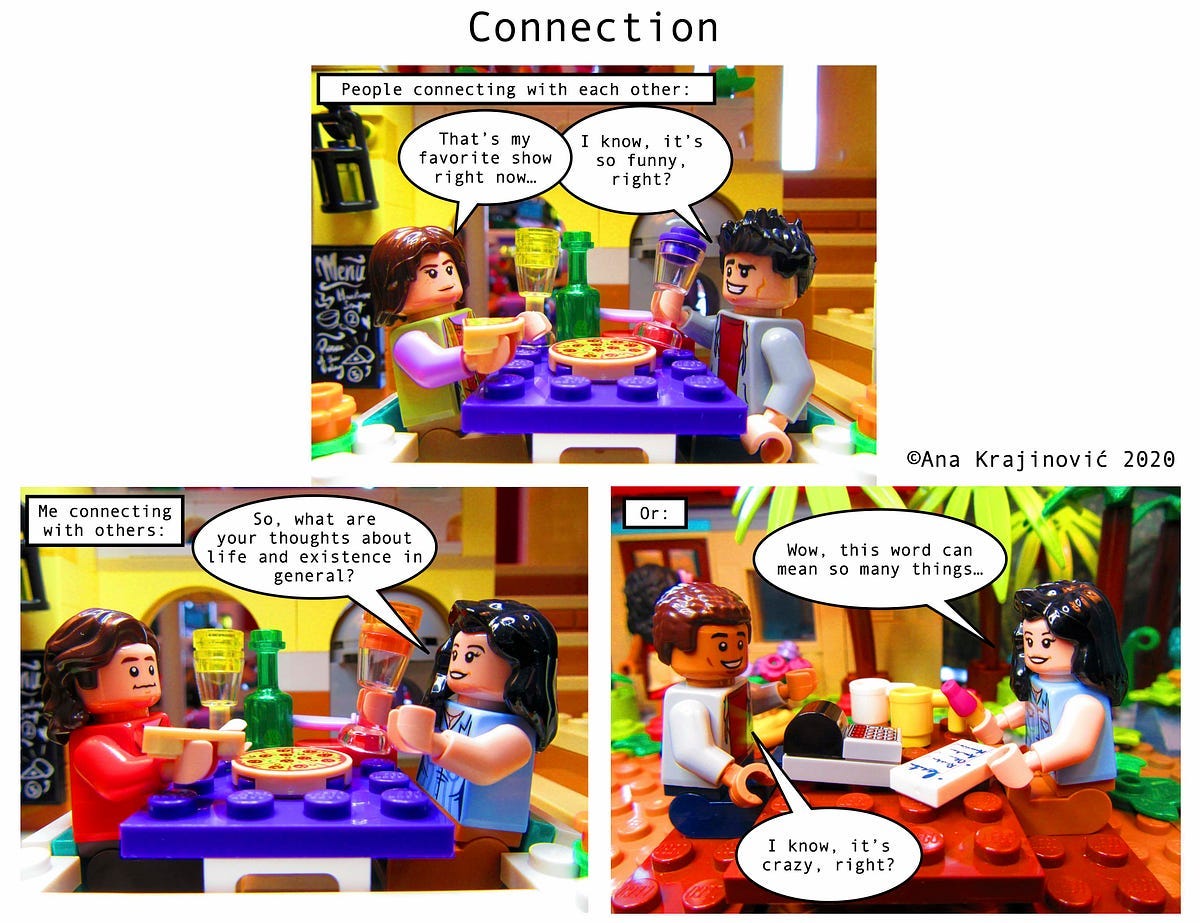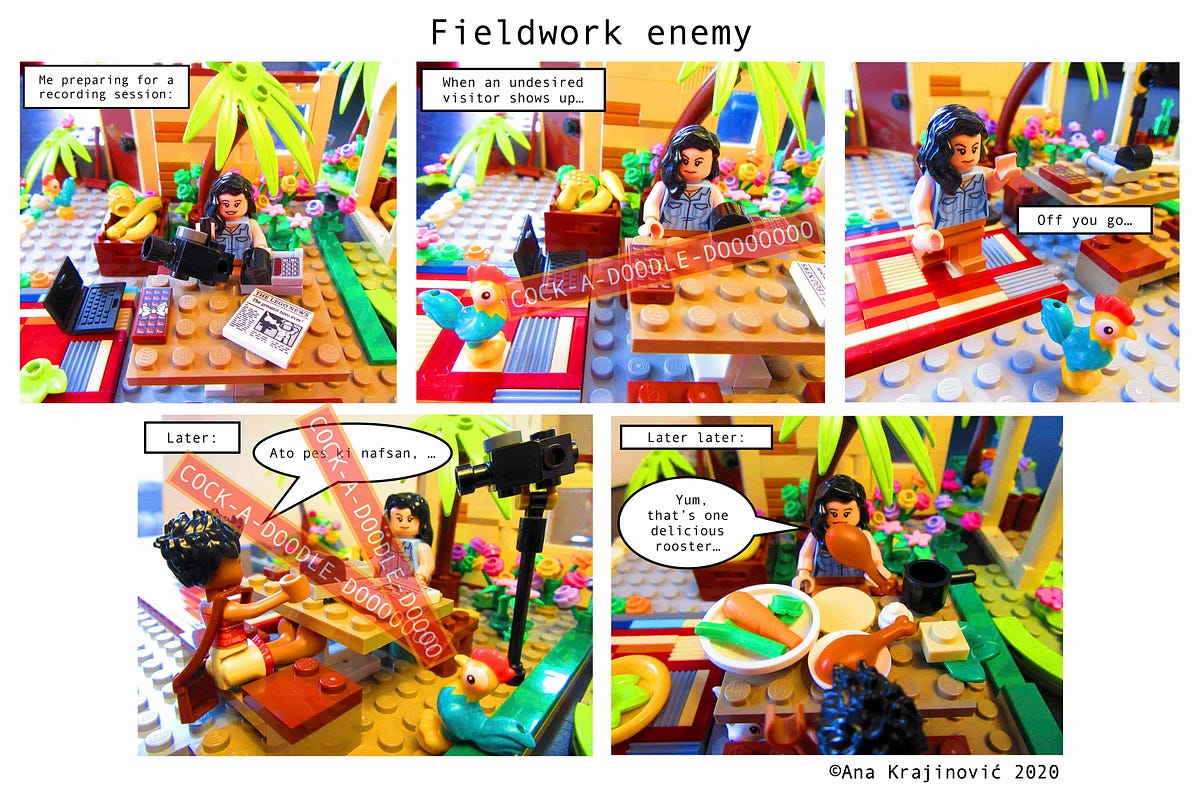You Want Your Writing to Stand Out? Develop Your Voice!
5 simple tips on how to develop your unique artistic voice in writing
5 simple tips on how to develop your unique artistic voice in writing
While reading the book “Find Your Artistic Voice” by Lisa Congdon, I realized what makes certain writers stand out. They have a distinct voice! In the same way, your unique way of looking at the world and your experiences can become your artistic voice that sets you apart from other writers.
What is an artistic voice?
Lisa Congdon writes:
Your artistic voice is your own point of view as an artist. It includes your particular style […], your skill, your subject matter, your medium, and the consistency with which you use all of these things. It reflects your unique perspective, life experience, identity, and values, and it is a reflection of what matters to you. Ultimately, it’s what makes your work yours, what sets your work apart, and what makes it different from everyone else’s — even from artists whose work is similar. (From “Find Your Artistic Voice: The Essential Guide to Working Your Creative Magic.”, p. 12)
How to develop your voice in writing?
First of all, you probably already have an emerging writing voice, because you decided to write, which means you feel like you have something to say about certain things that matter to you. So, at the very least you have an idea of what you want to write about. But maybe you haven’t yet realized the full potential of your expression, and maybe some of your ideas need to mature a little bit more.
1. Experience
First of all, your voice develops through experience. And here I don’t mean only experience in writing itself, although that is an important part of it. I also mean life experience. You know how sometimes it is hard to talk with clarity about intense moments in your life immediately after they happened?
That is because you need time to process what happened. You cannot analyze your behavior objectively a week after a difficult divorce. Or evaluate everything you learned in college a day after graduation. It takes time to fully appreciate and understand the impact of the experiences we had.
When things are recent and still present in our minds, emotions are running hot and it’s hard to know what’s what. That’s where the experience comes in. Over time you will start seeing patterns, in your behavior, in your relationships, and in the world in general. For example, you might realize how living one year abroad in a different culture changed your attitudes toward the culture you come from (like in this article I wrote).

You might think these realizations are something out there in the world, something objective, but they are not. They are your own! This is how you see the world, in a way that is unique to your personality and your experience. Ultimately, this personal perspective is what you will write about and that will become your voice.
It is important to add here that you don’t need to be always writing about things that happened to you (or else you could only write once you are 100 years old and full of experience). You might get inspired by other people close to you, who lived through interesting events, or even famous people, whose lives speak to you. The way these events inspire you and what you have to say about them is once again your voice!
2. Write from a personal perspective
I often see advice on writing saying you should cite research and other people’s work to corroborate your claims. That is good advice if you are doing outreach about a very specific scientific topic, or if you are using someone else’s work as an inspiration, as me citing Lisa Congdon in the beginning.
But if you are trying too hard to stay objective, without bringing in your own perspective to the piece, you will not develop your artistic voice as easily. Your personal experience is what will stand out more than the claims that scientists discovered X and Y, especially if you are not an expert in that area.
Humans connect by sharing stories that matter, stories they can relate to. And this comes across best through sharing your unique way of interpreting the world. When you focus on what is unique about you in your writing, your voice will grow and stand out in a crowd. For example, you might see the humor in certain situations that other people would not immediately recognize. Pointing this humor out to others might become a part of your voice.

3. Write about the topics that interest you
Online writers often have the temptation to write about what is trending. And maybe sometimes that can bring you the profit you are looking for. But looking long-term, you want to develop your brand that stands out among many other writers. Again, this brand is your artistic voice, which you can only develop on stable grounds if you write about things that will always motivate you to write more: the topics you care about.
The topics that interest you often intersect with what you know a lot about, and that is the winning combination. For me language, life lessons, mental health, and comics are the topics that interest me right now. Analyzing language is a part of my professional life as a linguist, and thinking about life lessons, mental health, and comics are my hobbies. Even as an amateur in the last three, I like to think I know more about these topics than an average person.
Here you can also notice that the connection between the topics that interest me is maybe not the most obvious one. And that’s fine, there doesn’t need to be a clear connection! The specific combination of topics that interest me is what makes my writing unique, which will hopefully become recognizable as a part of my voice.
4. Think multimodally
You might be wondering why you are seeing random pictures and comics with Lego in this article. Well, that’s because I’m obsessed with Lego and I love building miniature scenes in Lego reflecting real life. During this past year, Lego comics and photos became my trademark. Now, I don’t know if this will remain an integral part of my expression, but it is certainly helping me in developing my visual side.
All this to say, you need to think about other modes of expression when you write.
Don’t just pick up some stock photos when you write. Try to think about what kinds of photos or visual stimuli you would like to see complementing your text. And even if you don’t like drawing or taking photos, ask an illustrator or a photographer for a collaboration. And if you really cannot express yourself visually, maybe selecting music to accompany your articles is a way to go!
Inspiring yourself in art other than writing is easy. Simply expose yourself to the creative things you like: movies, illustrated books, comics, music, podcasts, etc. The world is your oyster!
You will see that when you start thinking in these other modes of expression to complement your writing, your voice will become clearer. You will develop a certain taste for the types of messages and feelings you want to see reflected in your work.
5. Experiment
Last but not least, don’t forget to experiment. Remember that your voice is constantly developing and changing, as you are growing as a person. Experimentation is here to show you what works for you and what doesn’t. For example, experimenting with writing styles of different genres can help you figure out what aspects of each style you want to implement in your writing. Or maybe instead of photographing Legos, you might start photographing Barbies, anything is possible!
I hope you found these tips helpful. Good luck with developing your artistic voice and happy writing!
Sign up for my newsletter here!
Sources:
Congdon, Lisa. 2019. Find Your Artistic Voice: The Essential Guide to Working Your Creative Magic. San Francisco: Chronicle Books.





